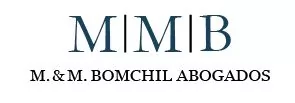Through the enactment of Law No. 57091, the City of Buenos Aires has taken a step forward regarding patient protection and possible conflicts of interest that might affect therapeutic decisions taken by healthcare professionals.
An information and advertising regime for payments and benefits received by physicians in the City of Buenos Aires has been set up in order to provide clarity on a controversial issue regarding the impact that these benefits have on the prescribing of treatments and medications.
Within the framework of this regime, the Law sets out that manufacturers, importers and distributors of medical, biological and pharmaceutical products that provide and/or deliver to healthcare professionals goods, services, benefits or inducements with an economic value must inform the Department of Health of the City of Buenos Aires –the enforcement authority of the aforementioned law- on said issues in order for them to be properly publicized. The information to be submitted must include, at least, the identification of the contributing company; the personal information of the physician that is to receive the benefit plus his/her medical specialty; and the date, characteristics and amount of the granted payment or benefit. This information must be published by the Department of Health of the City of Buenos Aires in order to allow for public inspection.
In order to avoid doubts on its scope, the Law identifies 'goods with an economic value' as: cash payments, professional fees, amounts destined to finance professional training activities, as well as the delivery of goods, travel tickets, gifts, accommodation, representation allowances, meals or any other goods that could be deemed to have an economic value.
The system established is closely linked to the ethical guidelines stemming from section 366 of the Ethics Code for Health Professionals of the Argentine Medical Association (AMA in its Spanish acronym).2 This code deems gross ethical misconduct for any health professional to receive any benefits or rewards from companies or laboratories of medical products in exchange for prescribing certain medications or medical products. In accordance with this view, the Ethics Code of the Industrial Chamber of Argentine Pharmaceutical Laboratories (CILFA in its Spanish acronym)3 contains general rules that set forth the obligation for its members to promote and commercialize their products according to the provisions of the regulations in force and the good practices of the sector.
More specifically, the Code of Good Practices for the Promotion of Medicinal Specialties and Interrelationship with Healthcare Professionals of the Argentine Chamber of Medicinal Specialties (CAEME in its Spanish acronym)4 sets forth the prohibition for its members on delivering or offering money or any other kind of inducements (including sponsorships, scholarships, subsidies, consultation or training agreements, or agreements related to the professional exercise) to a healthcare professional in exchange for prescribing, recommending, acquiring, dispensing or administering certain products, or for committing themselves to continue doing so.
In all cases, failure to comply with these ethical duties will only result in warnings, suspension of membership rights, or immediate expulsion from the respective entity.
The reverse side of the coin
Both at a national and local level there are regulations forbidding physicians from receiving inducements or benefits from laboratories and companies involved in healthcare, or discouraging any possible benefit derived from noncompliance with these obligations.
At a national level, section 20, subsections 19) and 21) of Law No. 17,1325 governing medical practice in its different specialties -including not only physicians but also dentists and those professionals engaged in activities related to medicine or dentistry- prohibits, inducing patients to buy in specific pharmacies or optical or orthopedics outlets and/or to obtain benefits from analysis laboratories, establishments that manufacture, distribute, commercialize or sell medicines, cosmetic products, dietary products, prosthetics or any other element used in the diagnosis, treatment or prevention of diseases. In this sense, this regulation provides that infringement of these prohibitions may result in penalties consisting of warnings, fines, suspension of professional registration and/or closure of the professional's offices.
In accordance with the statements above, section 366 of the AMA's Ethic Code6 provides that healthcare professionals must refrain from receiving privileges or benefits of any kind, for the prescription or advice on the use of medical products.
Law No. 25,6497 for the promotion of the prescription of medicines by their generic name, states in section 2 -among other statements- that all medical prescriptions must be made by stating the generic name of the drug or its commonly given international name, followed by its pharmaceutical form and dose/unit, detailing the concentration degree. Likewise, said law also provides that should the prescription indicate the brand or both the commercial and generic name, the pharmacist will be obliged, if requested by the consumer, to substitute it for a cheaper product containing the same active ingredients, concentration, pharmaceutical form and a similar amount of units.
That is to say that although this rule was created for purposes other than those discussed herein and, therefore, it is not based on the ethical nature of the incentives influencing a prescription, it happens to be an effective tool to discourage any possible benefit derived from the non-fulfillment of the medical professional. Of course, to the extent that the gift or benefit is related to the actual purchase of the drug and not just to its prescription, as it is well known that this information is recorded in pharmacies´ databases and could then be used to reward / encourage professionals.
As in the previous case, the failure to comply with these ethical duties is sanctioned exclusively by warnings, suspension of membership rights or expulsion from the respective entities8.
The future of the system
The Law has not been regulated, so up till now there are still more doubts than certainties, especially in relation to its practical purpose. It is enough to mention that the Law does not establish the consequences of non-compliance with its provisions, as well as of its effective fulfillment. This becomes more relevant considering that, as stated: there is no explicit rule criminalizing such conduct per se by medical professionals or manufacturers, importers and distributors of medical, biological and pharmaceutical products in the private sector.
On the other hand, it would be advisable to explicitly extend the scope of the rule to all health professionals who, by virtue of their functions, are liable to be subject to practices which the law seeks to prohibit. Given that while section 1 states that the rule is applicable to health professionals, the following articles - for which the reporting obligation is established - refer exclusively to physicians.
It is true that the reporting of these operations establishes a limit to laboratories and health companies at the time of justifying the granting of those benefits, fundamentally in terms of economic relevance, linkage with medical practice, frequency and objective criteria of adjudication.
However, it is also true that the Law only establishes an informative regime of operations of very limited scope, not only from the geographical perspective, but also as to its effectiveness and the obligatory observance thereof.
Although the Law establishes its goal of granting patients means aimed at providing as much information as possible as regards potential conflicts of interest that could affect therapeutic decisions adopted by health professionals, the truth is that simply knowing that a benefit was granted to an attending physician does not allow the patient to assess whether or not such benefit had an impact on the prescription.
It is therefore expected that through the regulation of the Act or in the framework of future rules of national scope, progress will be made in creating a reasonable and effective control regime aimed at discouraging and penalizing the granting of undue benefits and all kinds of practices that have the purpose or effect of influencing medical decisions to the detriment of patients, the principal victims of these practices.
Footnotes
1. Law No. 5709 in force from January 13, 2017.
2. Second Edition of the Ethics Code for Health Professionals with the contribution of the Argentine Ethics Association in Commemoration of the 120th anniversary of the foundation of the Argentine Medical Association (1891-2011), Revised and Expanded Edition (2001), available (in Spanish) available at https://www.ama-med.org.ar/page/Codigo_de_Etica-2da_Edicion .
4. Available at
http://www.caeme.org.ar/images/caeme-codigo-de-etica-vigencia-15-de-diciembre-2016.pdf
5. Law 17,132. The Art of Healing: Rules for the Exercise of Medicine, Dentistry and Related Activities in force from January 31, 1967.
6. Idem 2.
7. It is important to point out that there are substantive rules with national scope that might be applicable to this issue when the healthcare professionals were public officers. Thus, for instance, section 256 of the National Criminal Code provides that any public officer that directly or through a third person accepts money or any other benefit or a direct or indirect promise to make, delay or cease to perform something in relation to his/her duties will be punished with imprisonment and special permanent disqualification. Likewise, section 258 of said code foresees similar sanctions for officers that directly or indirectly offer or give said benefits. Similar prohibitions derive, among others, from Law 15,164, Decrees No. 41/99 and 1023/2001 with a national scope, and Law 2095 applicable in the City of Buenos Aires. Nevertheless, these regulations do not apply to private relationships.
8. Only in case of injury or death caused by this type of conduct, could the punishments provided for in Chapters I and II of the Second Book, TITLE I of the National Criminal Code, be applied.
The content of this article is intended to provide a general guide to the subject matter. Specialist advice should be sought about your specific circumstances.


